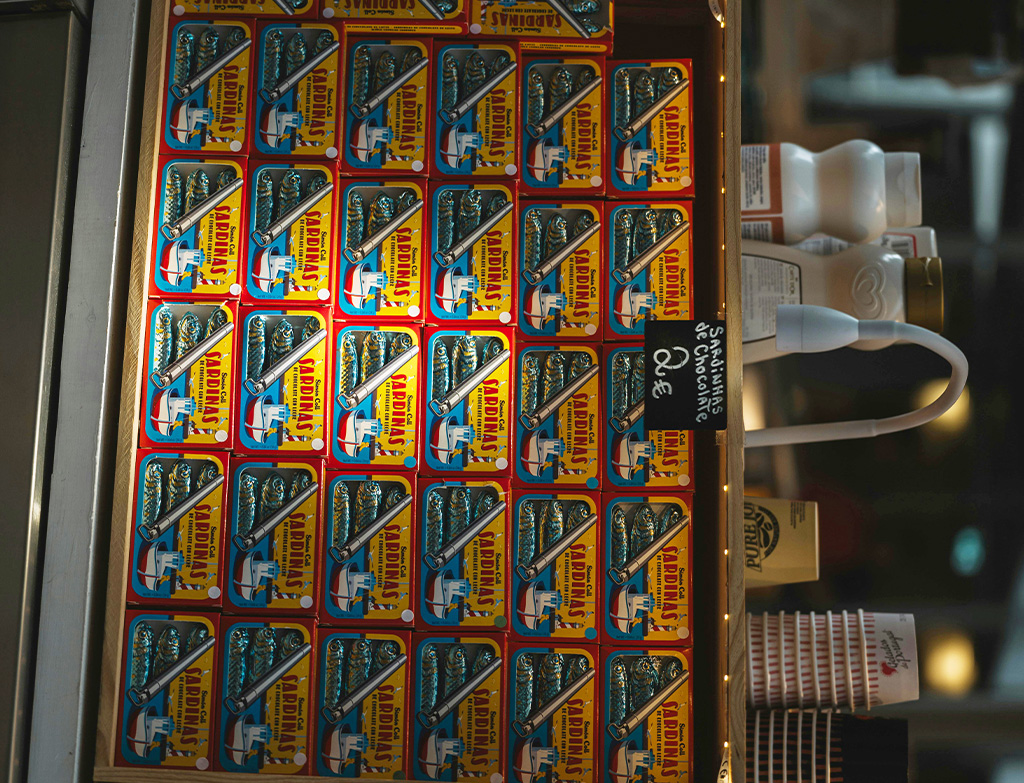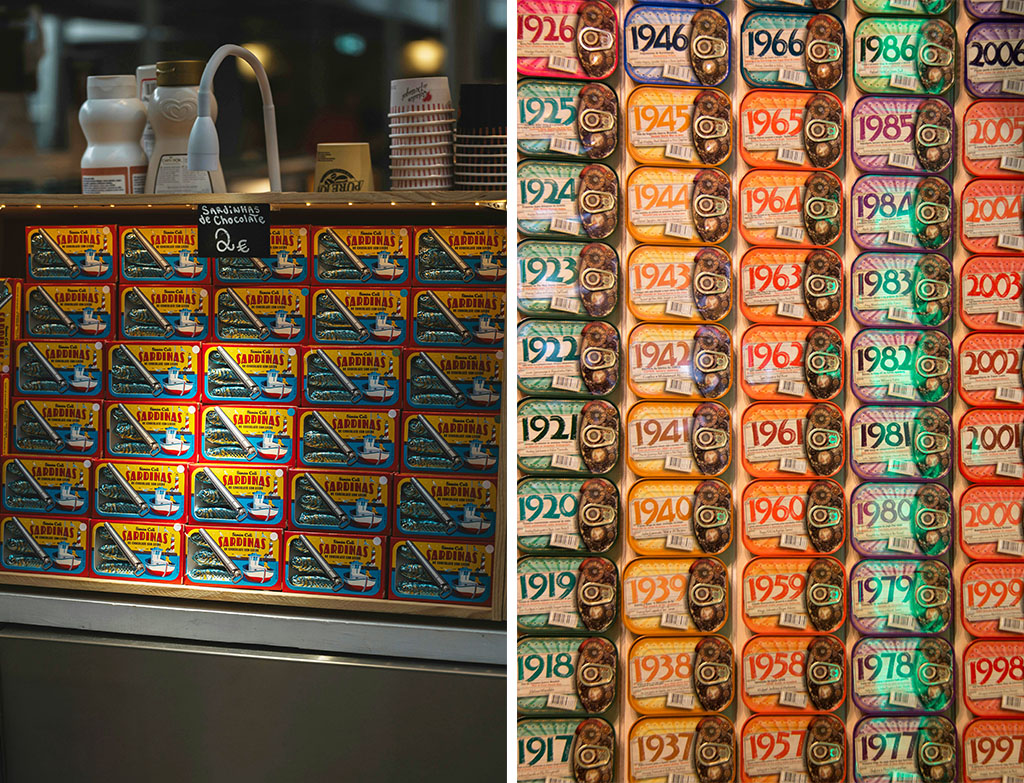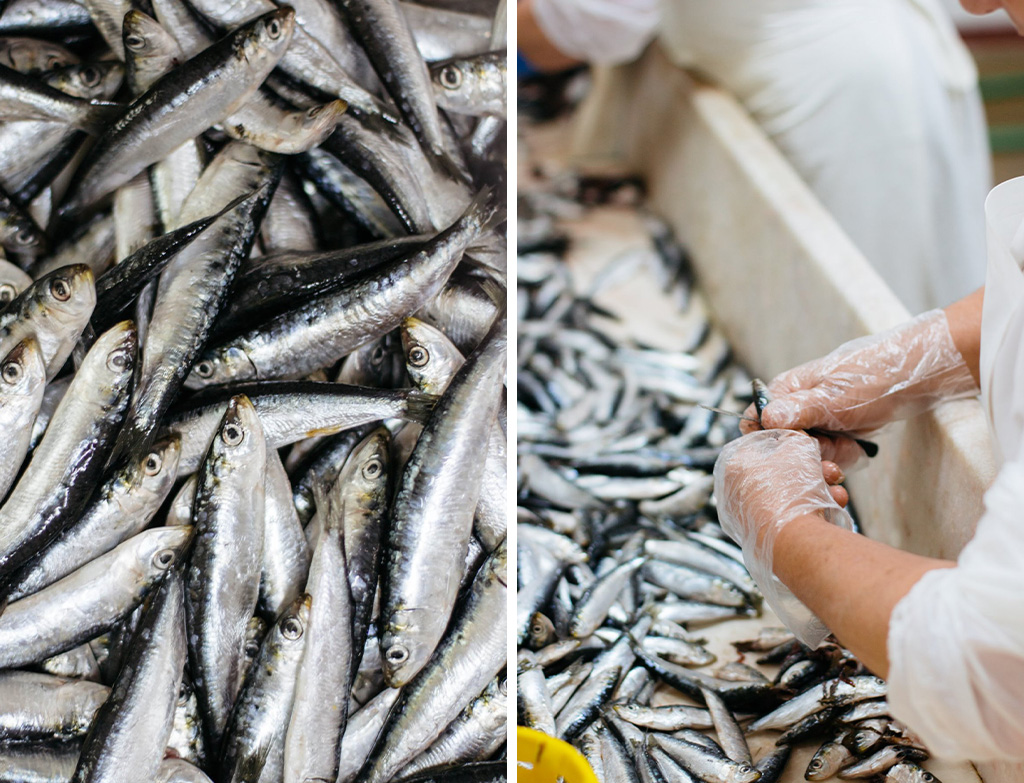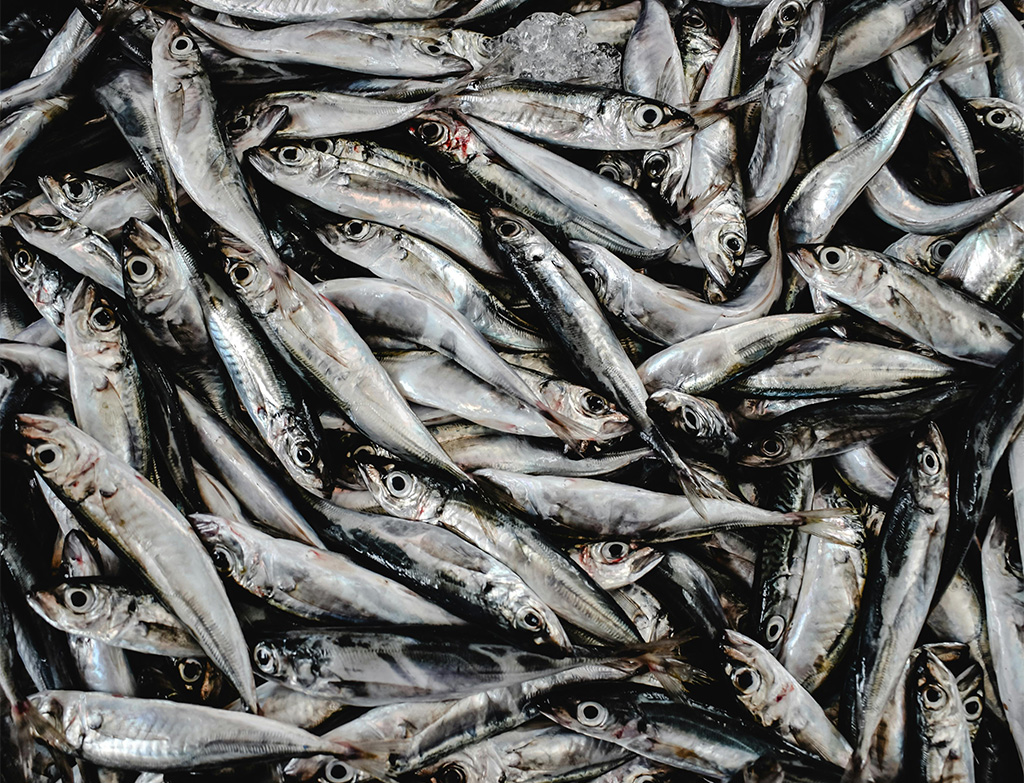
Long before tinned fish hit TikTok and the runways, Lisbon’s conservas shops were selling edible design objects. Dive into the rich history and aesthetic of the world’s chicest canned food
In Portugal, history is often tiled onto walls and baked into custard tarts. But it’s also packed in olive oil, sealed under tins and adorned with a time-stamped label. What began as a humble means of preservation has evolved into a symbol of national identity, artisanal pride, and aesthetic revival. Today, Portuguese sardine tins are having a moment—collectable, giftable and unmistakably beautiful. Here’s how Portugal’s coasts have tinned, sealed and delivered the ‘Sardine Girl Summer’ trend to you.

Once essential to survival and sea-bound trade, canned fish (conservas de peixe) emerged in Portugal in the 19th century, with sardines as its iconic staple. At its peak in the early 20th century, Portugal boasted over 400 canneries, each producing rows of tins with lithographed labels that now read like miniature historical posters. Through economic downturns, dictatorship, and democratic rebirth, the sardine tin remained, quietly preserving both fish and folklore.

The artistry of these tins—bright colours, vintage fonts, folkloric figures—speaks of a time when branding had to be loud enough to sell in a marketplace and nostalgic enough to bring home. Companies like Conserveira de Lisboa still hand-wrap their Tricana and Prato do Mar tins in brown paper and string, while Comur has transformed the can into a modern design object—offering editions by year, occasion, or astrological sign.

Yet the real resurrection began in the 2010s, when Portugal’s global renaissance brought renewed attention to its culinary traditions. Restaurants like Lisbon’s Can the Can serve conservas in fine-dining formats—smoked eel in pastry nests or tuna muxama paired with orange and amaranth. At the Pinhais cannery in Matosinhos, tins are still packed by hand in freshly made tomato sauce or olive oil, then aged for flavour. Their Nuri brand has become a cult favourite, a tinned-age delicacy as much as a design artefact.

Today, the sardine tin is more than a pantry item. It’s a souvenir, a statement piece, and a cultural emblem. It belongs in kitchens, sure, but also on bookshelves, in museums, and hanging from ceilings (as they do in chandeliers made of 3,000 tins). The fish hasn’t just leapt from the pantry to the pedestal, but it has also swum straight onto the runway. Enter Sardine Girl Summer—fashion’s whimsical detour into tinned nostalgia. What in Lisbon kitchens has since ricocheted through TikTok and the trend cycle, transforming a pantry staple into a style motif. With Bottega Veneta’s sculptural Sardine bag and Staud’s viral beaded shoulder styles, the sardine has become a shorthand for playful eccentricity. Fish prints now appear on everything from breezy dresses to gold pendants, worn by those craving a dash of irony in their summer wardrobe. And yet, for all its Gen Z sparkle, the trend’s visual language, all glossy packaging, vintage typography and seaside romance, has Portuguese design coded in its DNA.

In its current form, Sardine Girl Summer may be a fashion moodboard, but its roots are unmistakably Lusophone. The tins that now dangle from wrists and inspire viral accessories were first created not for Instagram, but for survival, craftsmanship, and national pride. Their enduring appeal speaks to a larger cultural truth: that beauty, even in utility, can tell a story. Portugal gave us more than a trend—it gave us the blueprint for how nostalgia, identity, and aesthetic joy can coexist. Long before it was merchandised, the sardine was mythologised—on paper, in oil, and now, in style.
Where to Experience the Tin Renaissance

Conserveira de Lisboa, Lisbon: A shrine to tradition, unchanged since 1930.

Can the Can, Lisbon: Where gourmet cuisine meets tinned fish.

Pinhais Cannery, Matosinhos: A time capsule where tins are still made the old way.

National Association of the Fish Canning Industry Stores, Lisbon: A curated showcase of Portugal’s finest conservas.
From design to dining, Portugal’s sardine tins have gone from utilitarian to iconic: a reminder that preservation, in all its forms, is a kind of beauty.

 Add to favorites
Add to favorites

